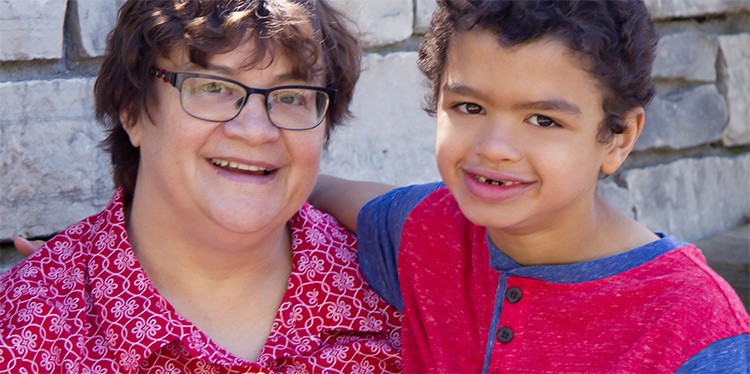He has dyslexia?

Guest post by Richfield Clinic doctor Dana Rae Barr, MD, FAAFP
When your child is not making the expected academic progress or having “behavior” problems in school, he may have an undiagnosed learning disability. I did not fully appreciate all of the possible diagnoses that can contribute to academic struggles. Until recently…
My son started kindergarten two years ago not knowing his letters and numbers. I was not concerned, as I thought he would learn to read in kindergarten or first grade. The kindergarten teacher was concerned, so she recommended extra classes after school.
When he finished his kindergarten year, he had met all expectations. Starting first grade he struggled with reading, writing, spelling, and math and had trouble staying on task. At an early conference, I was told he was reading “zero words per minute”. I had always considered him a smart kid, so I was quite surprised. A few weeks later he was diagnosed with dyslexia.
As a family physician, I was amazed by all I did not know about learning disabilities. Dyslexia is very common, affecting 20 percent of the population and representing 80– 90 percent of all those with learning disabilities. Although dyslexia is a reading disorder, it affects much more than just reading. Dyslexia is caused by differences in how the brain processes information. It can be hereditary. Simply put, it is a “brain-wiring” issue. This makes learning to read and reading very difficult.
Children experience dyslexia differently. Most of us think dyslexia is seeing letters upside down or backward, which is what I thought. This may be true for some children with dyslexia, but dyslexia is much more. For example, c-a-t is instantly recognized as “cat” by most children. A dyslexic child does not consistently recognize the letters c, a, and t. Once a letter is identified, he/she struggles to associate the sound that the letter makes. Then he struggles to put the sounds together to make a word. He may recognize “the” in one sentence and 3 sentences later, not knowing it is “the”.
Dyslexia affects reading speed and comprehension. It is difficult to sound out words. Most children with dyslexia have average or high IQ so there is a gap between their academic performance and their IQ. Public schools can evaluate to see if the child qualifies for special education or accommodations, but they do not diagnose/identify dyslexia. A dyslexic child can learn to read with specialized teaching methods. Testing outside the public school is needed and can be costly. Minnesota recently passed legislation requiring all kindergarteners and first graders to be screened for dyslexia, but it will take time until this is fully implemented.
One invaluable resource I discovered is PACER Center – Champions for Kids with Disabilities. Their website is amazing and has a lot of information about multiple issues such as special education to bullying prevention. The people who answer the phones are parents who advocate for children and will help you help your child. There is so much to learn (IEP, 504 plan, accommodations, response to interventions, etc.) and PACER can guide you through the process of getting your child what he needs to succeed in school.
Guess what? Thomas Edison invented the lightbulb, phonograph, and the early video camera, and created about 1,000 other patents and he had dyslexia. Other famous dyslexics include Bill Gates, Henry Winkler, Richard Branson, Steven Speilberg, Steve Jobs, Tim Tebow, Tom Cruise, and Erin Brockovich. Dr. Sally Shaywitz, from Yale Center for Dyslexia and Creativity, describes dyslexia as a “weakness in a sea of strengths”. Early identification and intervention allow children with dyslexia to reach their full potential in school and life.
My son, now in second grade, is reading at a first-grade level. He works hard at school and is making great progress. His self-confidence has returned and he actually likes school. We have met many families whose children have been labeled as “ADHD”, “oppositional”, “unmotivated” and “lazy” who have struggled to get a dyslexia diagnosis. Many children are not identified with dyslexia until middle school or high school. By then, their self-esteem may be low and they may develop secondary problems like anxiety and depression. Early identification and intervention is important for any learning disability.
Experiencing this firsthand has made me a better-informed doctor and parent. I hope by sharing our story, another child can be helped.
Here are some website resources that I found helpful:
International Dyslexia Association
Yale Center for Dyslexia and Creativity

Dana Rae Barr, MD, FAAFP, is a family medicine doctor who practices at our Richfield Clinic. Dr. Barr cares for patients of all ages. She is committed to providing patient and family-centered care.
5 Comments
Leave a Comment
You must be logged in to post a comment.


Thank you for being an example in the medical community and shedding light on this important issue to colleagues! Far too often parents who should trust their gut feelings are told the child will catch up, they’re not trying hard enough OR that their child has ADHD. Please keep educating and sharing on behalf of these sweet children!
What a lucky boy to have such a loving family. I wish you the best as you travel this journey. Dana just think of the difference you may make for others with everything you learn.
Belated Happy Thanksgiving Wishes.
Dana Barr is a compassionate MD/woman/mom who takes the time and energy to listen and hear. Kudos for sharing this story so others can benefit.
Terrific article Dana, thanks for sharing your story, especially important early identification! MMV
I practically never post comments on weblogs, but I like to say I enjoy reading this website. Normal I site about psychological illnees, like ADHD.